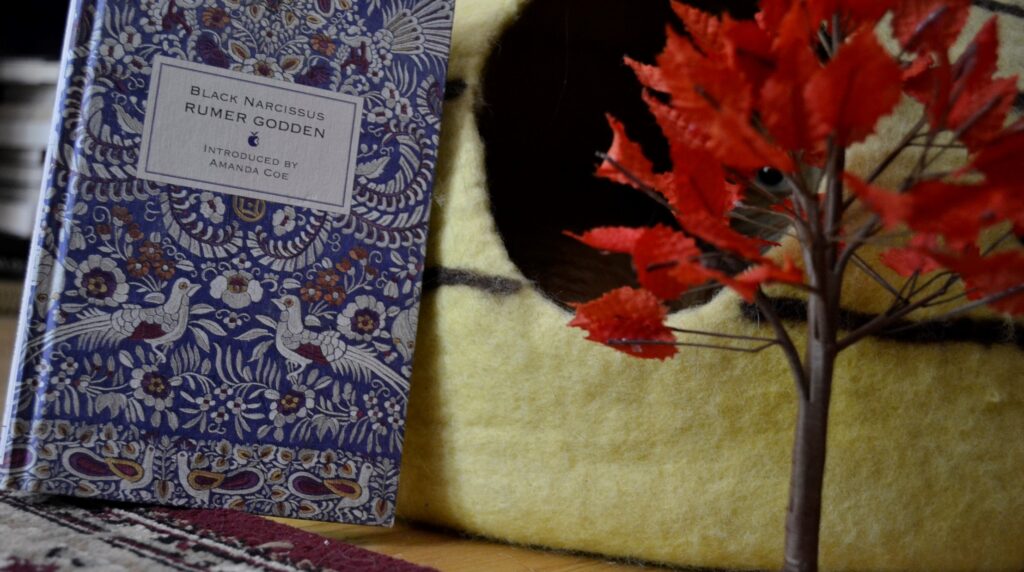One Very Long Lovely Day
It’s happened: my lovely spouse has now gotten her first tattoo as the crowning moment to our long day in the big city yesterday. It looks absolutely beautiful, and she’s gorgeously glowing with happiness about it. I’m so happy too. I’ve gotten so many tattoos, but this one that I’m sharing with her feels extra special — even more so than I expected it to feel. It feels like all of our ten married years and all the years that came before them visible on my body is one piece that we share. I love seeing the piece on her hand and on mine, a symbol just as powerful as our wedding bands.
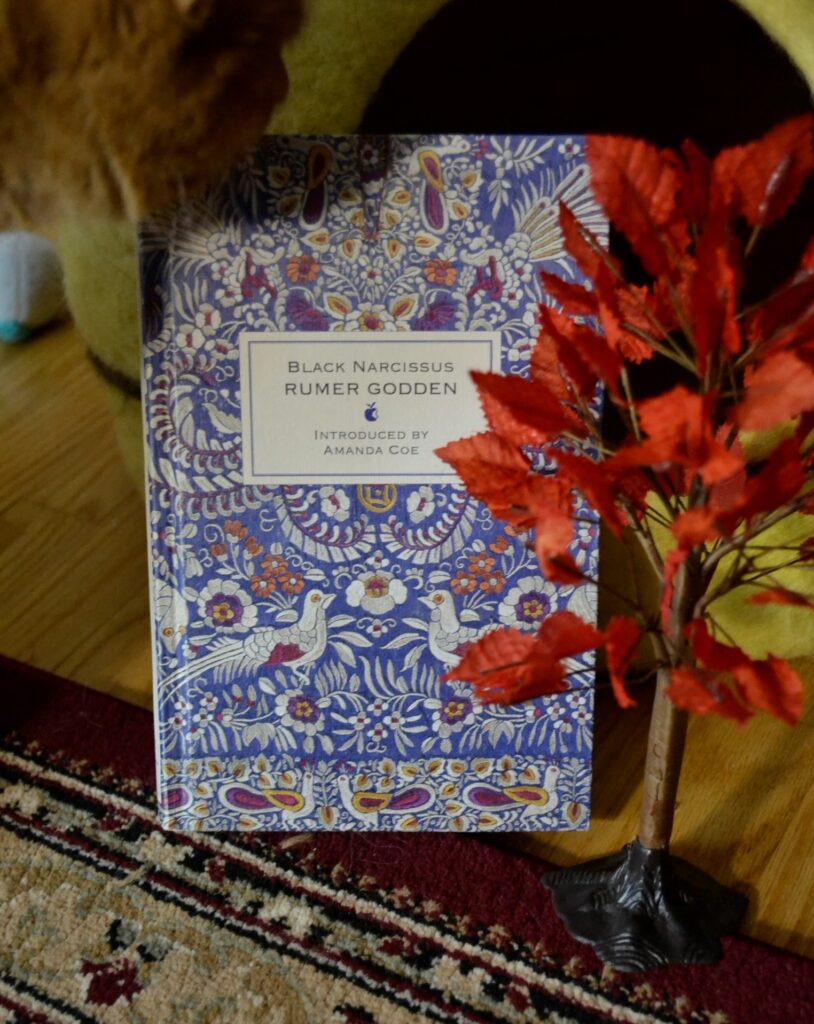
It was worth the train and the taxis and the time it took to coordinate everything. It was worth the months of agonizing about placement and images and fussing over when to get it done. I’m beyond grateful that my lovely spouse decided to share this experience with me. I love her so much. Ten years went by in the blink of an eye.
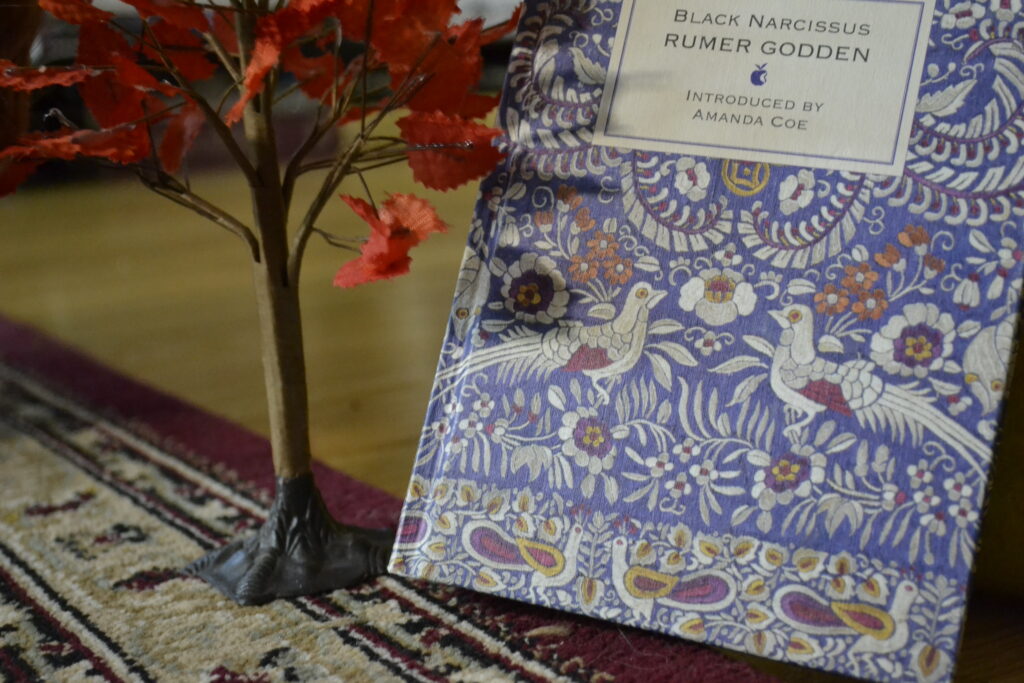
It’s All in the Setting
Ruth Godden’s Black Narcissus is a novel that unfolds in the high Himalayas as a group of nuns tries to make a mission of an abandoned palace that once housed a general’s harem. As they struggle with the isolation of the new surroundings and dealing with the indigenous Himalayan populations, the ghosts of the past insert themselves into the present. What follows is the slow dissolution of who the nuns thought they were before they arrived.
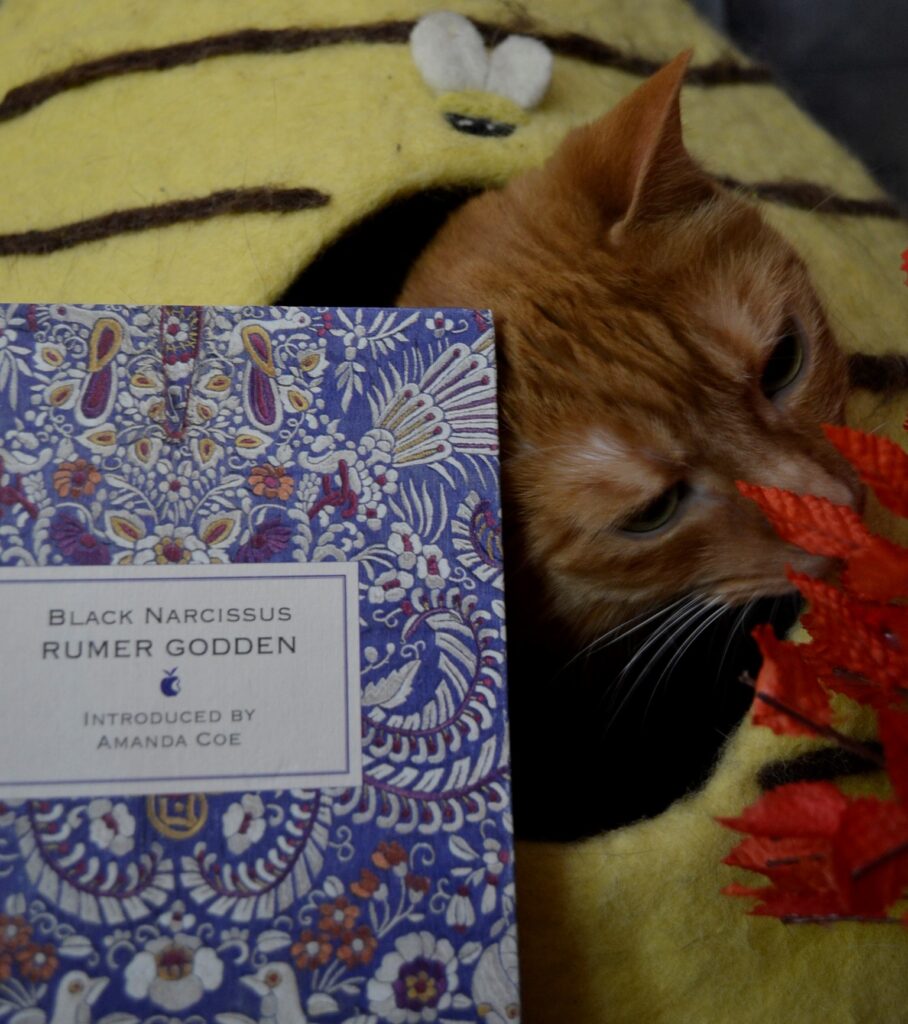
It’s not a traditional ghost story, but feels like one in terms of atmosphere and the painstakingly detail Godden puts into describing the mountains and the onus she puts on nature as a living, breathing part of the narrative. There are spooky unexplained aspects of the narrative that describe an unexplained presence and ghostly influences that while they are not explicitly detailed, do exist and dog each of the characters in turn.
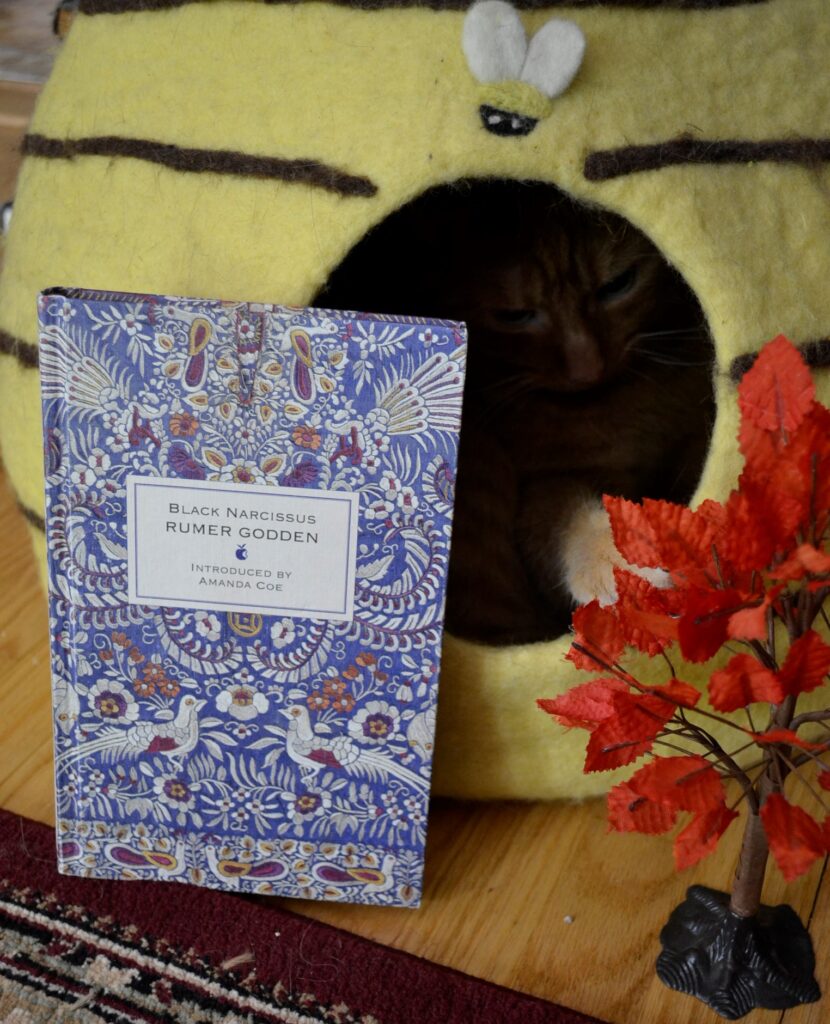
It’s All in the Subtlety
It’s the subtlety that I described above that really makes this book a great selection to the spooky season — especially if you’re looking for something a bit off the beaten path. It’s the unnamed presence and ghosts of the past that the film Black Narcissus from 1947 starring Deborah Kerr takes full advantage of in a lush technicolor thriller that I absolutely recommend. It’s the film that I came across first, though I would probably recommend the book first as its more intricate and more shocking of a novel if you are unaware of the sensational plot turns that the film highlights.
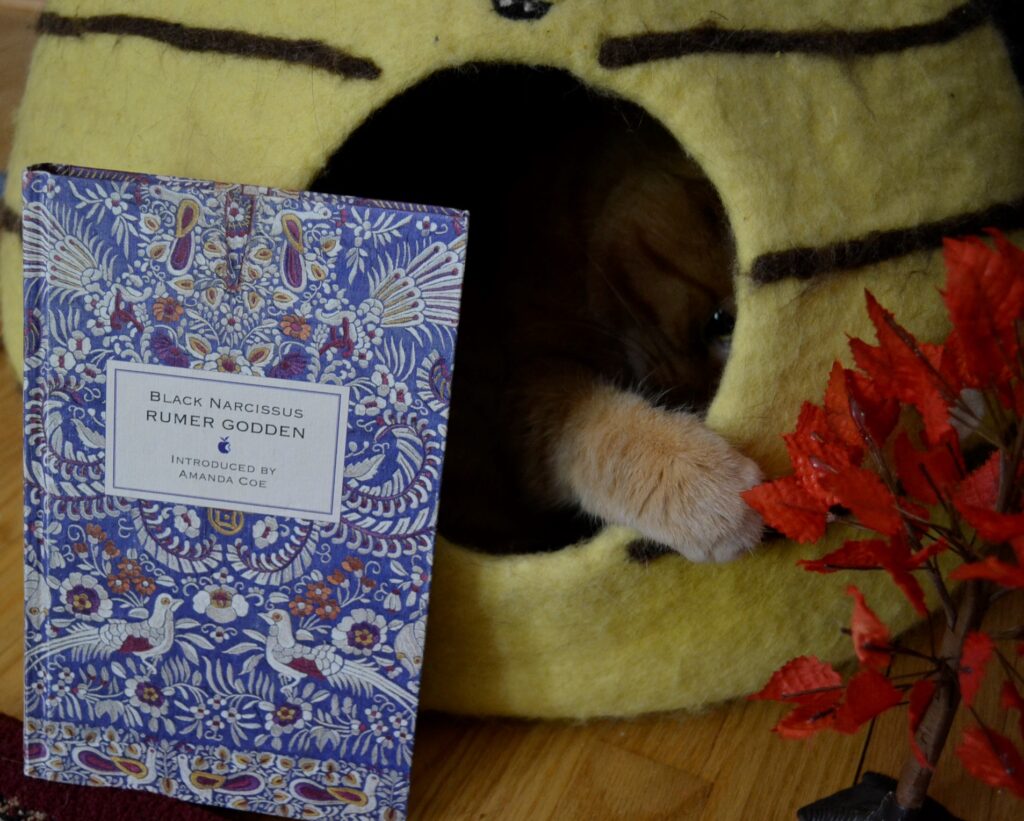
Modern Problems
This book was written in 1939 and has the expected amount of problems for its time when it comes to attitudes towards women and Indigenous Peoples. There is colonialism. There are clear cases of stereotypes. The nuns are interested in spreading Christianity and assimilating the Himalayan people they come across. There is an imposition of their beliefs on everyone in their vicinity. It’s a narrative that relies heavily on a very colonialist mentality and there’s no excuse for that and there’s no avoiding it when you’re reading the novel or watching the film.
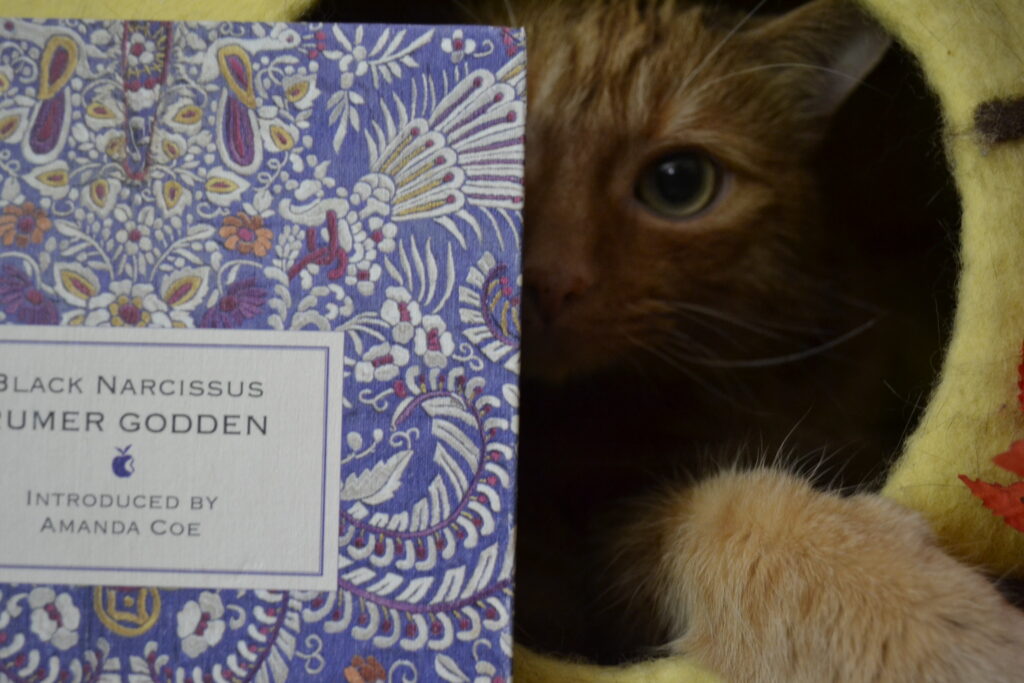
Admittedly, it’s a bit satisfying when the palace ends up shaking their identities and their belief in their own culture’s infallibility because of this colonialism, but I doubt that was entirely Godden’s point. It definitely is part of it, because it’s clear that the convent is meddling with forces it does not care to understand and trodding on delicate ground. But I’m not convinced that’s an explanation for the full extent of the colonialism or every incidence where it rears its head.
Also, the interaction of the women with Mr Dean is not easy to read. Though he is supposed to be the knowledgeable party due to his experience in the Himalayas, it comes across like he is somehow more practical because he is male. The emphasis on his ruggedness is very difficult to reconcile and, while it is essential to the narrative, leaves a bad taste behind it.
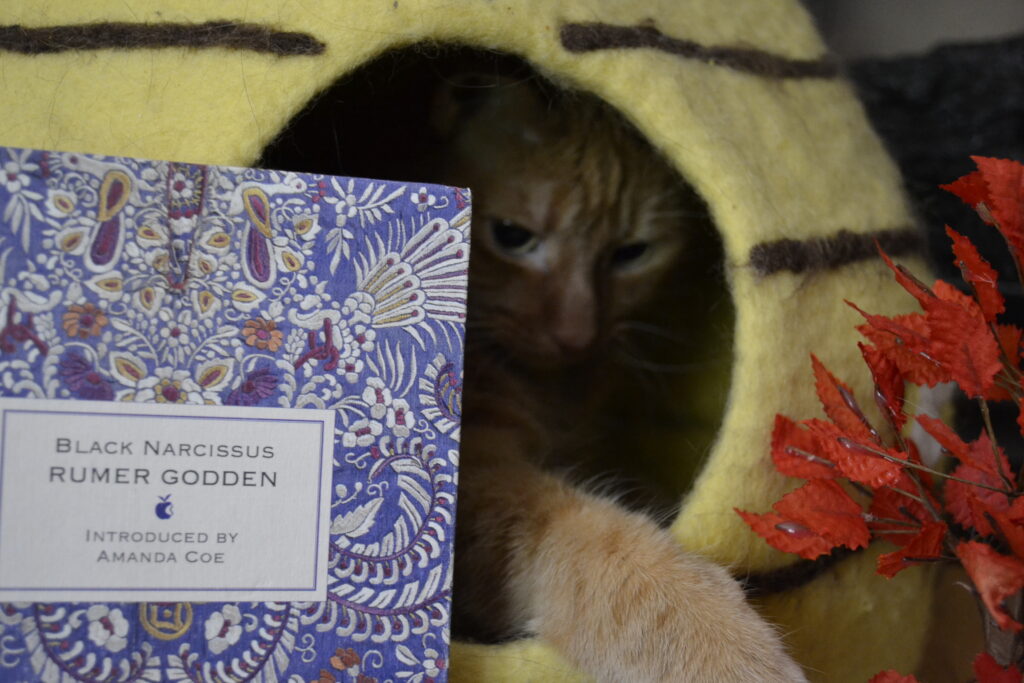
The Day After
Now comes the more difficult part — the healing process. At this point I don’t even need the print out of the aftercare instructions, I’ve been through this so many times. However, my lovely spouse is new to this and she’s new to the foibles of taking care of a healing tattoo. The little bit of aching and itchiness and stinging are nagging at her a bit and she’s very tempted to poke the image (which is very thankfully under a clear bandage). Even this part is going to be magical. She has so many talents and areas of expertise that I’m enjoying getting to help her with a process that I’m so familiar with.
But the best part? When she looks at her new ink and smiles that incredible, happy smile that I just can never get enough of.
